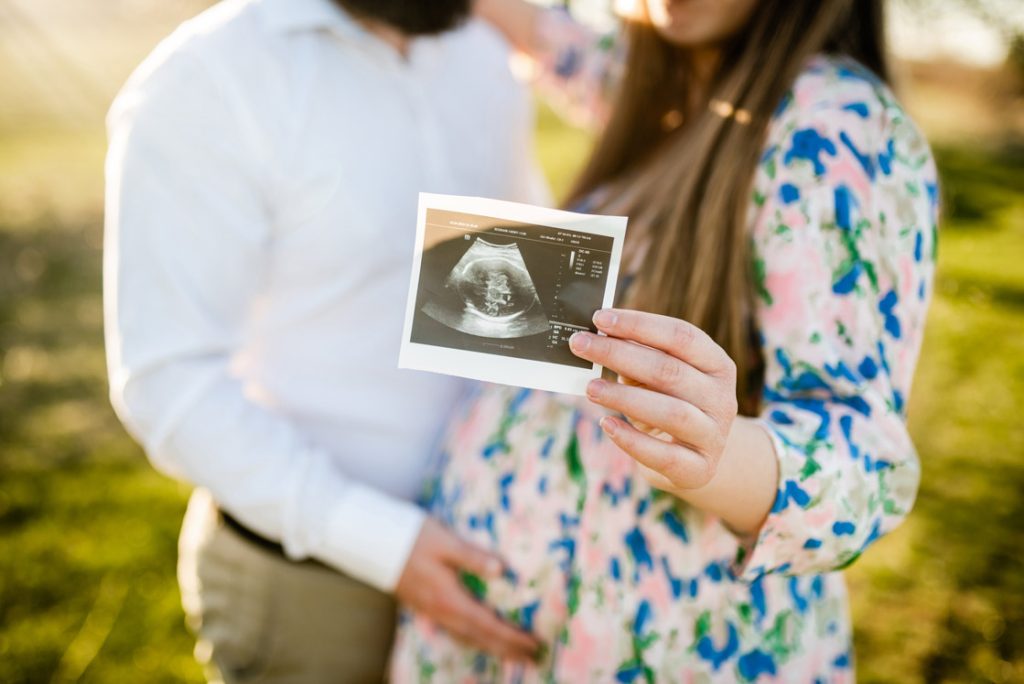For women who’ve suffered recurrent miscarriage, it can be hard to put into words just how difficult the experience is. When all you want is a baby of your own, the repeated loss is heartbreaking. But what can be done? Can you have a healthy pregnancy after recurrent miscarriage? With the right treatment, frequently the answer is yes. Read on to find out more.
What is recurrent miscarriage?
In the UK it is reported that around 1 in 5 pregnancies result in miscarriage – but this figure adjusts to around 1 in 6 if we only count women who knew they were pregnant at the time. When a woman suffers two or more pregnancy losses between positive pregnancy tests and 20 weeks gestation, we call it recurrent miscarriage. It is seldom talked about, but the problem affects 1-5% of couples trying for a baby. Recurrent miscarriage can be very traumatic, and is associated with increased risk of anxiety and depression in women, and their male partners.
Is recurrent miscarriage considered infertility?
Strictly speaking, recurrent miscarriage (2 or more miscarriages) is distinct from infertility (the inability to conceive a pregnancy after a year or more of regular unprotected sex). However, the result for couples is the same – they desperately want to experience parenthood and thus far have not been able to. In many cases, both problems share the same underlying pathology (causes).
Generally speaking, fertility clinics provide interventions to help women and couples actually get pregnant. But some clinics, such as The Fertility and Gynaecology Academy in London, also specialise in treating recurrent miscarriage.
Can you have a healthy pregnancy after recurrent miscarriage?
Yes, there is every chance you can have a healthy pregnancy after recurrent miscarriage. But statistically speaking, the more miscarriages you have, the more difficult it gets. However, over 6 in 10 women who experience 2 miscarriages will proceed to carry a baby to term. But as the leading baby loss expert bodies advise, after 2 or more miscarriages, you should get specialist medical support for recurrent miscarriage.
What help is available after recurrent miscarriage?
Dr Gorgy, Consultant at The Fertility and Gynaecology Academy and a leading expert on recurrent miscarriage says: “The first step is to conduct exacting testing, to try to pinpoint the root cause of the recurrent miscarriage. And since as we always say here at The Fertility and Gynaecology Academy, time is fertility, this testing should be conducted sooner rather than later.”
Possible causes of recurrent miscarriage include:
Uterine cavity issues
Miscarriage can occur when there is an issue with the structure of the womb’s interior (uterine cavity). A woman may have one or more abnormalities including adhesions (e.g. from previous surgery or infections), polyps (usually benign growths), scar tissue, or even a septum present since birth. (A septum is when the womb has an extra piece of tissue hanging from the top, which may be small or in some cases large enough to separate the womb into two cavities).
Even small abnormalities can make it more difficult to carry a pregnancy, and taking steps to resolve them can better your odds of success.
To find out if uterine abnormalities could be causing recurrent miscarriage, fertility experts can perform scans. Here at The Fertility and Gynaecology Academy, we perform saline hysterography (aqua scan/SIS), injecting saline into the womb cavity to assess its integrity. If any abnormality is discovered, we conduct hysteroscopy (examining the womb with the aid of a narrow telescope, light and camera) to determine the best treatment (for example surgical removal of polyps).
Weak cervix
The cervix is the passage at the bottom of the uterus that connects the uterus to the vagina. At full-term of a pregnancy, the cervix will start to shorten, and will dilate from contractions during labour.
In rare cases, a woman will have a structural problem with her cervix (known as cervical incompetence or a weak cervix) in which the cervix can shorten and open in the second trimester or early third, without labour symptoms. This can cause miscarriage or premature labour.
Treatment for a weak cervix may include progesterone supplementation or a ‘cervical stitch’ procedure, in which the cervix is stitched firmly closed to sustain the pregnancy (the stitches are then removed in the final month of pregnancy or prior to delivery).
Infection
Various infections rare or common – including STIs such as chlamydia or gonorrhoea – can lurk without symptoms and affect your body’s propensity to carry a baby to term. If you have suffered recurrent miscarriage, it is crucial that clinicians consult with you to determine any infection risk factors and conduct extensive screening.
Blood clotting disorders
There is an association between thrombophilia (when your blood forms clots too easily) and recurrent miscarriage. ‘Sticky blood’ can hamper the blood flow to the placenta and even create blood clots that stop the placenta from working properly, denying the foetus vital nutrients and oxygen, which can cause miscarriage. Treatment may include blood thinners such as aspirin and heparin.
Thyroid problems
The thyroid is a crucial hormone-producing gland. All too often, thyroid problems can go undiagnosed until they begin to create problems for a woman trying to conceive and carry a baby. For example, an underactive thyroid (hypothyroidism) can make it harder to carry a baby to term because the thyroid isn’t releasing enough hormones to sustain the pregnancy and support foetal growth and development. Or some women have a high level of thyroid antibodies in their bloodstream that assault the thyroid, affecting its function. This can elevate a woman’s risk of miscarriage. Thyroid disorders can be diagnosed with blood testing, and usually effectively treated with medication. If you have thyroid problems, it is important to get them under control before conception.
Diabetes and other underlying health issues including polycystic ovaries
Having an insulin disorder such as diabetes can increase your risk of miscarriage, and recurrent miscarriage has been shown to be associated with later type 2 diabetes. Sometimes diabetes can be insufficiently managed, or women experiencing recurrent pregnancy loss may be unaware they have diabetes. Like diabetes, Polycystic Ovarian Syndrome (PCOS) is connected to insulin abnormalities and can lead to miscarriage.
After recurrent miscarriage, experienced fertility clinicians should conduct thorough consultation and screening to either rule out or help to properly manage any underlying health conditions that could affect your ability to carry a baby to term.
Genetic problems
The most common cause of miscarriage is chromosomal abnormalities in the baby. And indeed recurrent miscarriage often happens because of genetic problems.
Here at The Fertility and Gynaecology Academy, as specialists in treating recurrent miscarriage we can run a sophisticated test called karyotyping to identify genetic problems in the mother and/or father.
Research and medical discussion on miscarriage has mostly concentrated on women, rather than men. But contemporary research projects are demonstrating links between DNA damage in sperm and a much higher risk of miscarriage. Indeed one recent study has shown that the sperm of men whose partners had suffered recurrent miscarriage had more DNA damage than those men whose partners had not miscarried. Analysis of sperm and testing for sperm DNA fragmentation can help to determine issues of concern. Fertility experts can analyse and select the healthiest-appearing sperm for IVF/ICSI treatment.
We can also test the embryos themselves for genetic problems. Here at The Fertility and Gynaecology Academy, we are able to offer in-house genetic testing of embryos, to avoid the transfer of abnormal embryos into the womb during fertility treatment. The HFEA’s current position on genetic testing is available here.
Immune problems
For a woman suffering recurrent miscarriage or recurrent IVF failure, the issue may lie with her immune system. The female reproductive system and immune system have a complex relationship that medicine is still trying to understand. The immune system defends against foreign cells and will assault invaders such as infections, and even your own cells if they become a threat. For a successful pregnancy, the female immune system must at once protect against infections which could threaten the baby’s development but not attack the growing embryo (which is at least half-composed of foreign cells) and the placenta (which is actually the embryo’s tissue, not the mother’s).
Reproductive immunology is the theory that a pregnancy can be rejected by a woman’s body due to immune cells. For example, if the natural killer cells which work to defend a woman’s body from disease exist at excessive levels, they may attack the pregnancy or disturb the endocrine system that generates the vital pregnancy hormones. There is still much debate about reproduction and the immune system in the scientific community and since there are no wide-scale controlled studies offering indisputable evidence to affirm the reproductive immunology theory, organisations like HFEA do not recommend it.
However, here at The Fertility and Gynaecology Academy, as specialists in successfully treating both recurrent miscarriage and recurrent IVF failure, we have found that in a select group of the patient population, reproductive immunology can be beneficial. We are able to run a series of sophisticated tests measuring different immune chemicals in your blood and the lining of your womb (endometrium), to determine if excessive levels of them could be making it difficult to carry a baby. If immune cell abnormalities are found, we can offer carefully tailored immune treatments to get your body baby-friendly. There are of course no guarantees, but as a clinic that patients frequently come to after treatment has failed elsewhere, we have helped countless couples who had all but given up hope to finally achieve their dream of a baby of their own.
Getting pregnant after recurrent miscarriage
Here at The Fertility and Gynaecology Academy as experts in complex cases, we don’t believe that recurrent miscarriage or recurrent IVF failure is simply due to ‘bad luck’. If you want answers, we can run a series of exacting tests for both partners to identify precisely what could be causing recurrent miscarriage – and employ leading-edge treatment to resolve it.
To book a consultation with one of our expert team, call 020 7224 1880 or email info@fertility-academy.co.uk.







